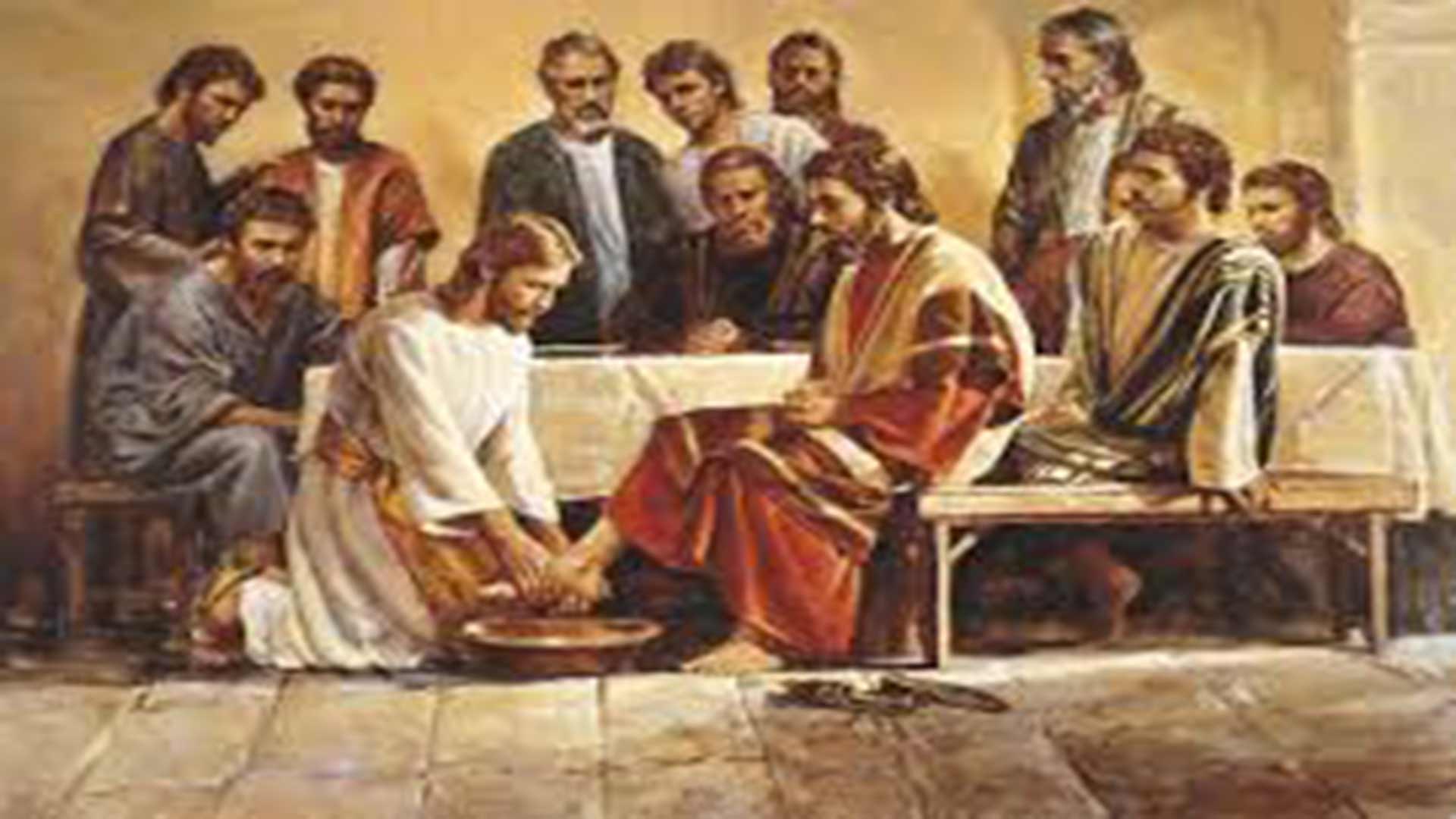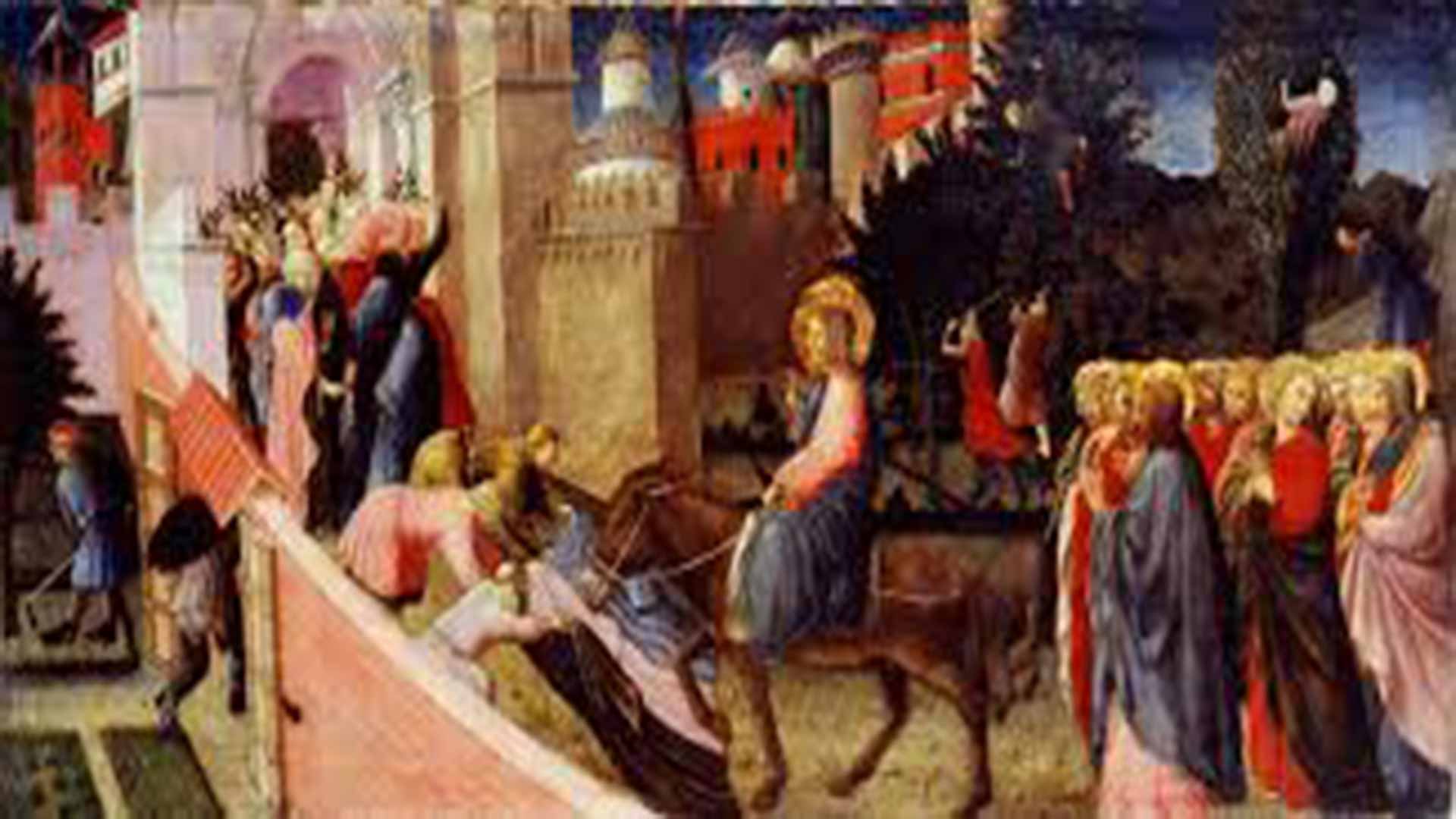The Lord calls us to love one another
LENT 2020 – Day 44
Readings: Ex 12: 1-8, 11-14; Ps 115: 12-13, 15-16, 17-18; Cor 11: 23-26; Jn 13: 1-15
Maundy Thursday is the first day of the Easter Triduum. The readings of the Mass of the Lord’s Supper form a bridge between the historic liberation of the Israelites from slavery in Egypt and the final liberation of the world from the bondage of sin.
The reading from the Book of Exodus points to the origin of Israel as God’s Chosen People. The Lord commands that this month be the first of the year, in commemoration of the beginning of their liberation. He ordains on how to observe the Paschal rituals. These foster a feeling of religious community through the sharing of the paschal lamb. The staining of doorposts with blood of the expiatory lamb is the stamp of the divine that wards off all evil. Unleavened bread eaten in haste accompanied by bitter herbs is a symbol of the suffering from which the Israelites had fled.
When the twelve Apostles celebrated the Passover with their Master, they followed the traditional rite evoking the old covenants. It was also a thanksgiving for God’s many interventions to rescue the Israelites. What the Apostles did not realize, however, was that the Last Supper marked a new beginning. Jesus had anticipated Calvary where He would be presenting Himself as the paschal lamb, the Lamb of God. He did so mysteriously, by converting bread and wine into His Body and Blood. The Son of God made this supreme act of love so as to redeem the sins of humankind. The Holy Mass thus established became the bloodless Sacrifice of the New Covenant.
The Eucharist is a masterpiece of Jesus’ love, the best proof of His love for humankind. He made the Apostles participants in His Priesthood and ordained them to carry out that mystery. He gave them responsibilities and authority: to bind and loose in His name, to forgive sins, to transform the bread and wine into His Body and Blood. This the ordained priesthood would do infinite times, until the Lord’s return to the world. Their role is vital in helping the faithful to carry out their baptismal priesthood.
There was no better occasion than the Last Supper for the Lord to command His followers to love one another. He said, “A new commandment I give unto you, that ye love one another; as I have loved you, that ye also love one another. By this shall all men know that ye are my disciples, if ye have love one to another.” (Jn 13: 34-35) This new commandment is a summary of all of God's law and brings about the definitive liberation.
Speaking to the first Christians, St Paul reiterated that this liberation emerged when the Paschal Lamb, who is the Christ, was sacrificed. Given that we Christians aren’t always united in love, we must take seriously the reminder from the Apostle of the Gentiles: that the Eucharist and the Church – the Sacramental Body and the Mystical Body – are intimately connected. We should place ourselves at the service of our brethren, in humility and love, of which the washing of the Apostles’ feet by our Lord is emblematic. A Eucharist celebrated amidst division cannot be a sign that we are followers of Christ.
Our Lord's saga of pain and suffering begins
LENT 2020 – Day 40
Readings: Is 50: 4-7; Ps 21: 8-9, 17, 18a, 19-20, 23-24; Phil 2: 6-11; Mt 26: 14-27, 66
The first two readings are a prologue to our Lord’s saga of pain and suffering described in the Gospel passage. Eight hundred years before Christ, prophet Isaiah anticipated the happenings on Calvary; and a millennium before Him, His ancestor King David wrote the haunting cry that the Christ crucified would utter: “My God, my God, why hast Thou forsaken me?” St Paul highlights the fact that the Son of God speaks here as “a servant, born in the likeness of men.” He underscores the humility and love with which our Lord looked at His earthly mission.
Today is commonly known as “Palm Sunday”. The evangelists have passages fit to commemorate this Sunday. Yet, the overarching theme of our Lord’s Passion takes precedence on this day, alternatively called “Passion Sunday”.
St Matthew portrays more than the story of a single day; he gives an overview of the first six days of the Holy Week. Accordingly, the passage comprises the entry of Jesus into Jerusalem on Sunday; His Passion on Thursday and finally His Death on that fateful Friday. However, in real time, Jesus’ last week on earth was packed with many other events as well. All together they precipitated the final meltdown, which soon became a watershed in world history.
With St Matthew as our guide
Let’s walk with St Matthew to see the places that Jesus visited, and why. Let’s also look at the personages that Jesus encountered on the way. They make up an eloquent portrait gallery in which you and I are sure to meet our human types.
When Jesus entered Jerusalem, He met an ecstatic lot. They spread garments and tree branches on the road, and shouted “Hosanna to the Son of David!” The city was stirred with the visit of “the prophet Jesus from Nazareth of Galilee”. Was this for real? Had Jerusalem accepted Him as their long-awaited Messiah? Well, this sudden switch of sentiments, this picture of innocence and goodness, seemed too good to be true. Thanks to human chemistry, an equal and opposite reaction gets underway in the minds and hearts of others following Jesus’ moves.
If the cheering multitude was naïve in its enthusiasm, so were Jesus’ disciples in their lack of fervour. On Thursday, they simply followed His instructions and arranged the Upper Room to hold their supper. Perhaps to them it was just another yearly feast. Did they understand what Jesus meant by saying that He would meet them again only “in my Father’s kingdom”? Ironically, only Judas Iscariot perhaps did, for he’d already conspired to sell his Lord for thirty pieces of silver.
That Wednesday night Jesus went out to the Mount of Olives to pray. He knew that His time was at hand. And knowing His sheep, too, He foretold that striking the shepherd would scatter them. To them it meant very little. Humans like us, lost in their own preoccupations, Peter, James and John fell asleep at three crucial moments. Curiously, here we see the human facet of Jesus too. Left to fend for Himself, he cried to His Father to let the cup pass if possible.
However, the human side of Jesus was soon superimposed with His superhuman dignity. When the kiss of betrayal brought in the hour, Jesus addressed Judas charitably as “friend”. And when someone cut off the ear of a soldier who had come to arrest Him, Jesus healed him instantly. What might the soldier have felt at that moment? What did he do thereafter: convert or continue his evil doing? We do not know. What we know, meanwhile, is that the disciples, the greatest beneficiaries of the magnanimous Jesus, took to their heels. What would we have done? And what do we do in the circumstances of our life today?
Next we meet old Caiaphas, yet another picture of human viciousness. He entertained a string of false testimonies. Then came the tipping point. Two witnesses reported that Jesus had declared that He could destroy the temple and rebuild it in three days. It no doubt crossed Caiaphas mind that Jesus was the Messiah but he didn't hail Him. Instead, he turned the tables on Him, crying “Blasphemy”, for which death was the punishment.
Jesus was next in the presence of Pilate, the governor. Here was a typical political figure playing to the gallery. He washed his hands and said, “I am innocent of this righteous man’s blood.” Why did he leave it to the populace to decide when he should have called a spade a spade? These are the undecided and/or the unconcerned who do everything only to save their skin…
At the praetorium, the stage was set for the final tragic act. Here we meet mockers. They stripped our Lord, and in disdain hung a scarlet robe over his body and a crown of thorns on his head. For a change, a man called Simon met Jesus as He wended his way to Calvary. Although they ordered him to help Jesus carry the Cross, he most likely did it with a measure of sympathy for the suffering Lord. Can we, like that Cyrenian, offer up our little sufferings as a humble participation in the carrying of the Cross?
At Calvary the ‘good thief’ said a good word to the dying Lord; he instantly merited Paradise. This goes to show that it’s never too late to convert. However, it’s better to be safe rather than sorry; we shouldn’t test God, as did Judas Iscariot, who stupidly lost his life in a shameful death.
After Jesus had died on the Cross, an old disciple, Joseph of Arimathea took charge of His sacred body. He wrapped the body in a clean linen shroud and laid it in his own new tomb. Like him, we too can help out, by rendering our services to the Bride of Christ. After all, the Church, which our Lord rebuilt on the third day, is the best repository of his memory. The Church also holds His three best gifts for humankind: first, the Holy Mass, held there every day as an unbloody enactment of the Holy Sacrifice on Calvary; second, the Priesthood, which He instituted as a sacrament of the New Covenant; and third, the commandment of love, a supreme example of how Jesus perfected the old law.
Our Lord Jesus Christ thus left us an invaluable heritage whereby we can become worthy candidates for eternal salvation. We will thereby vindicate His coming to the world.

